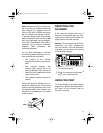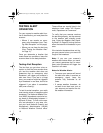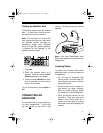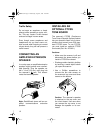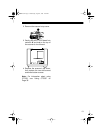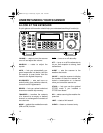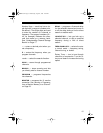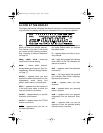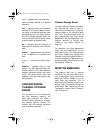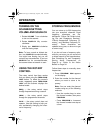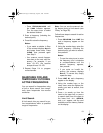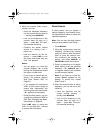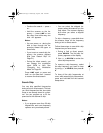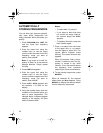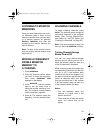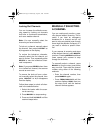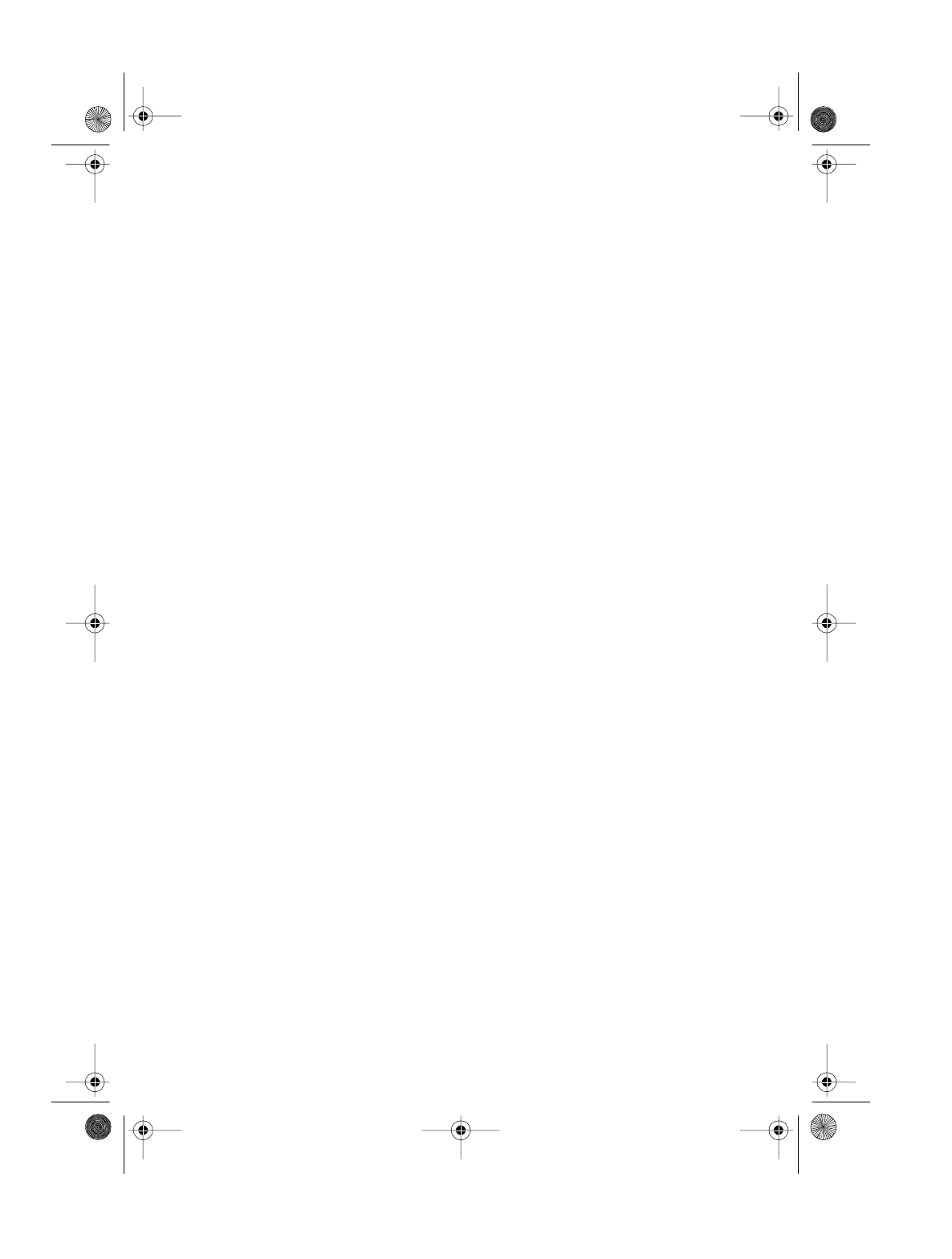
17
L/O
— appears when you manually
select a locked channel or a skipped
frequency.
DLY
— appears when you program a
channel for a 2-second delay or when
you listen to a channel that has been
programmed with the delay feature.
Also, the indicator appears when you
turn on the delay feature during a limit
or direct search or weather scan.
WX
— appears when the scanner is
searching the weather band frequen-
cies.
ALERT
— appears when the scanner
is set to respond to a weather alert
tone.
s and t — indicate the search direc-
tion.
SEARCH
— appears during a limit
search (
-L-
also appears), direct fre-
quency search (
-d-
also appears),
weather frequency search, auto store
mode, hold direct search (
-h-
also
appears), and hold limit search (
-H-
also appears).
UNDERSTANDING
CHANNEL-STORAGE
BANKS
You can store up to 210 frequencies
into your scanner’s memory. You
store each frequency into either a
memory called a channel, or a tempo-
rary memory called a monitor. This
scanner has 200 channel memories
and 10 monitor memories.
Channel-Storage Banks
To make it easier to identify and select
the channels you want to listen to,
channels are divided into 10 channel-
storage banks of 20 channels each.
Use each channel-storage bank to
group frequencies, such as the police
department, the fire department, am-
bulance services, or aircraft (see
“Guide to the Action Bands” on
Page 34).
For example, the police department
might use four frequencies, one for
each side of town. You could program
the police frequencies starting with
Channel 1 (the first channel in Bank 1)
and then program fire department fre-
quencies starting with Channel 21 (the
first channel in Bank 2).
MONITOR MEMORIES
The scanner also has 10 monitor
memories. You can use these memo-
ries to temporarily store frequencies
while you decide whether or not to
save them into channels. This is
handy for quickly storing an active fre-
quency when you search through an
entire band. See “Searching For and
Temporarily Storing Active Frequen-
cies” on Page 19.
20-418.fm Page 17 Wednesday, August 4, 1999 12:42 PM



